Diary of Trooper Ion Llewellyn Idriess-1915-1916-Part 8
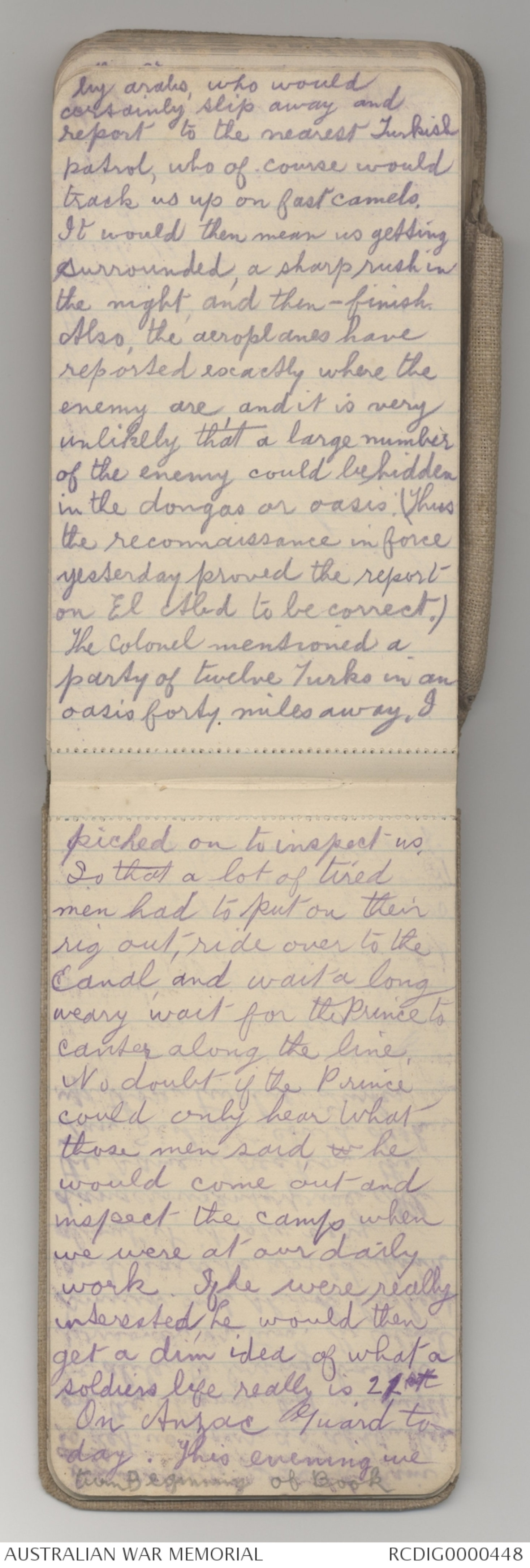
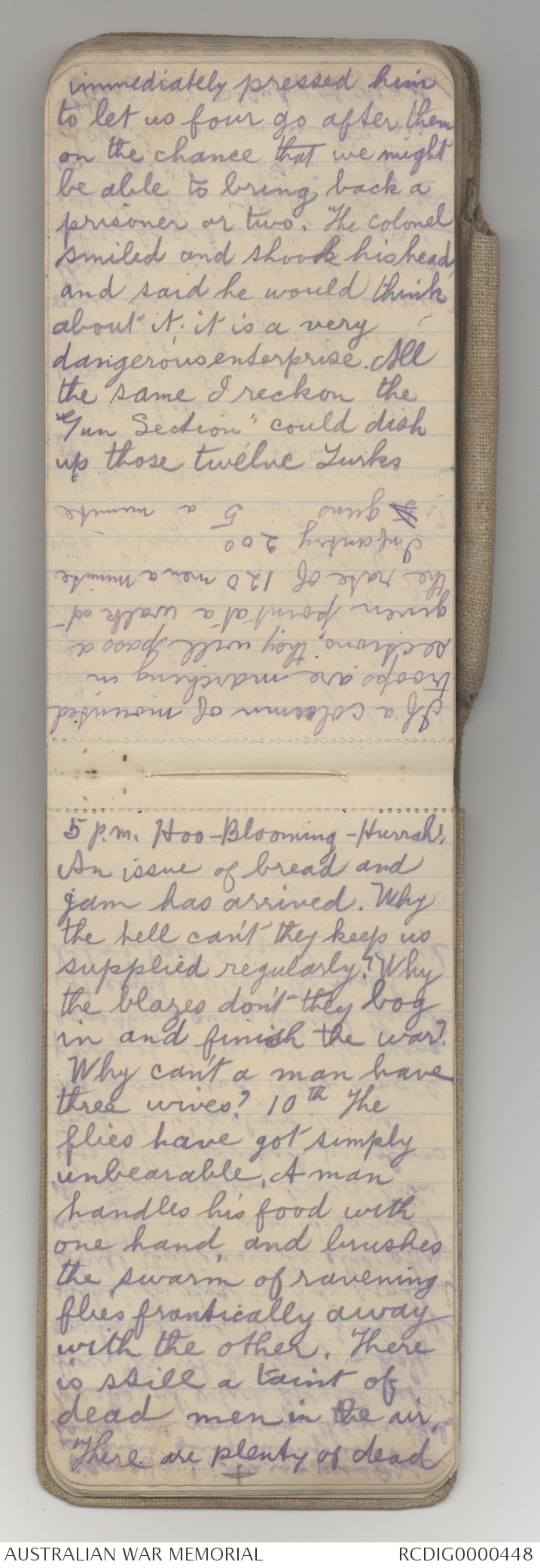

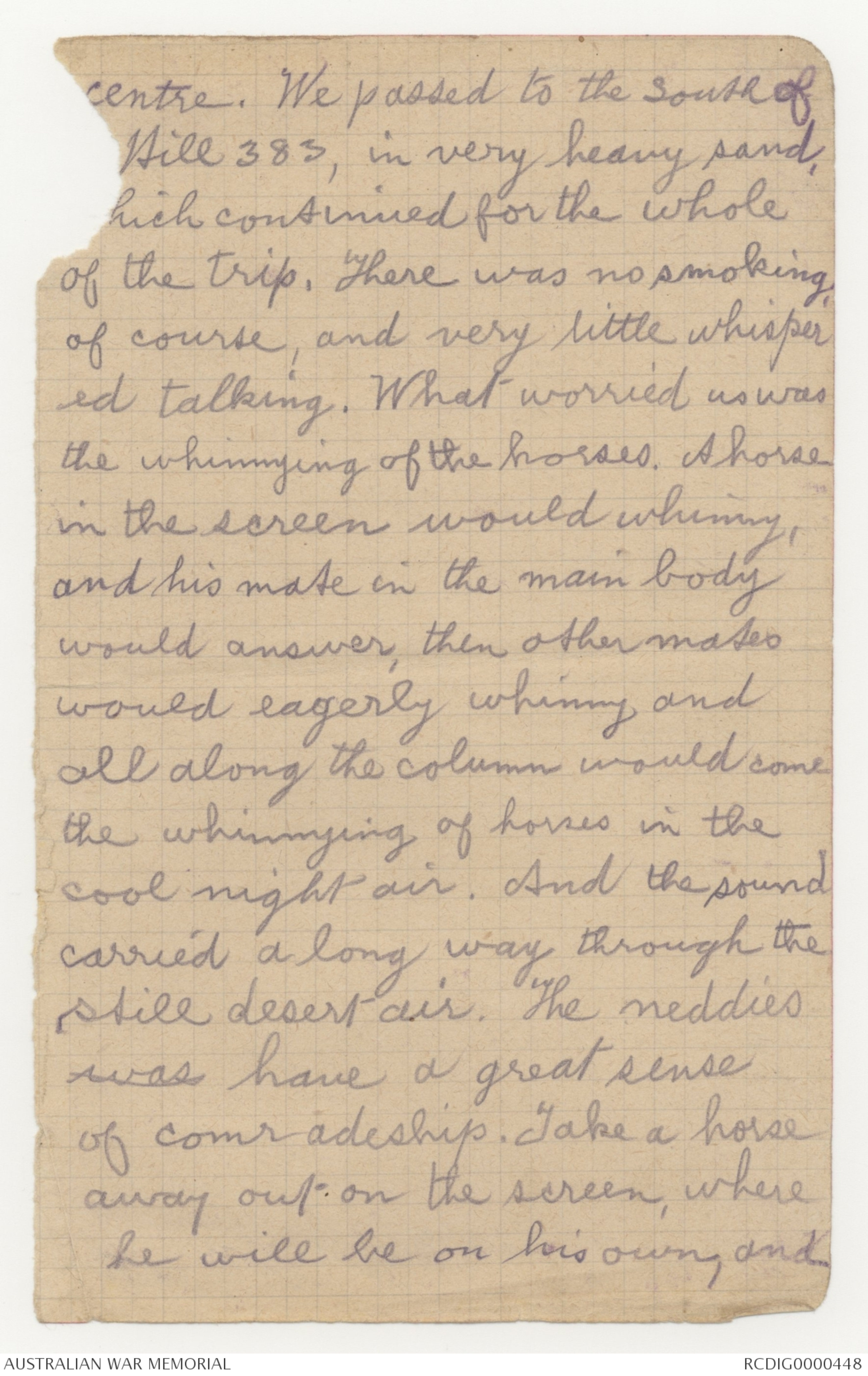
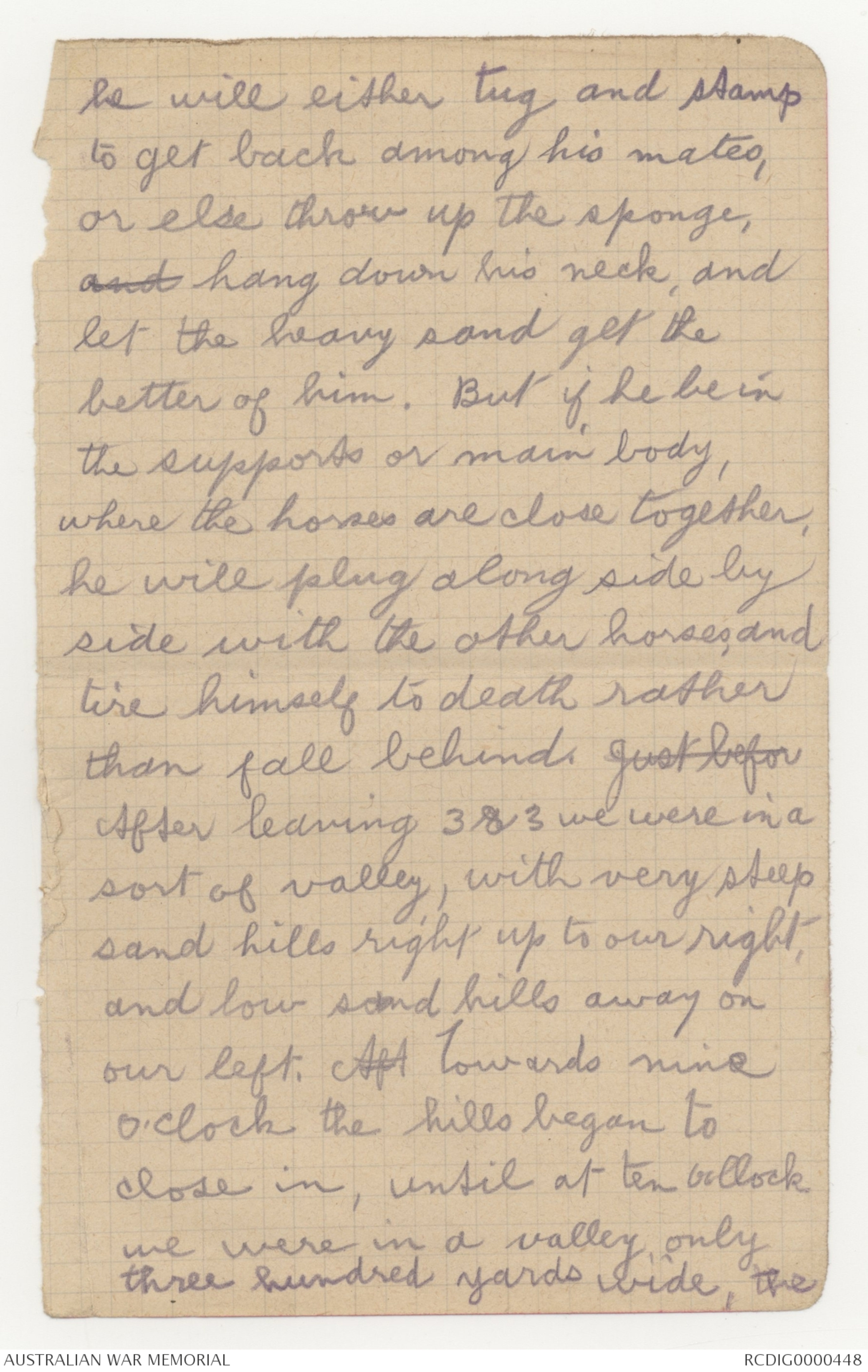
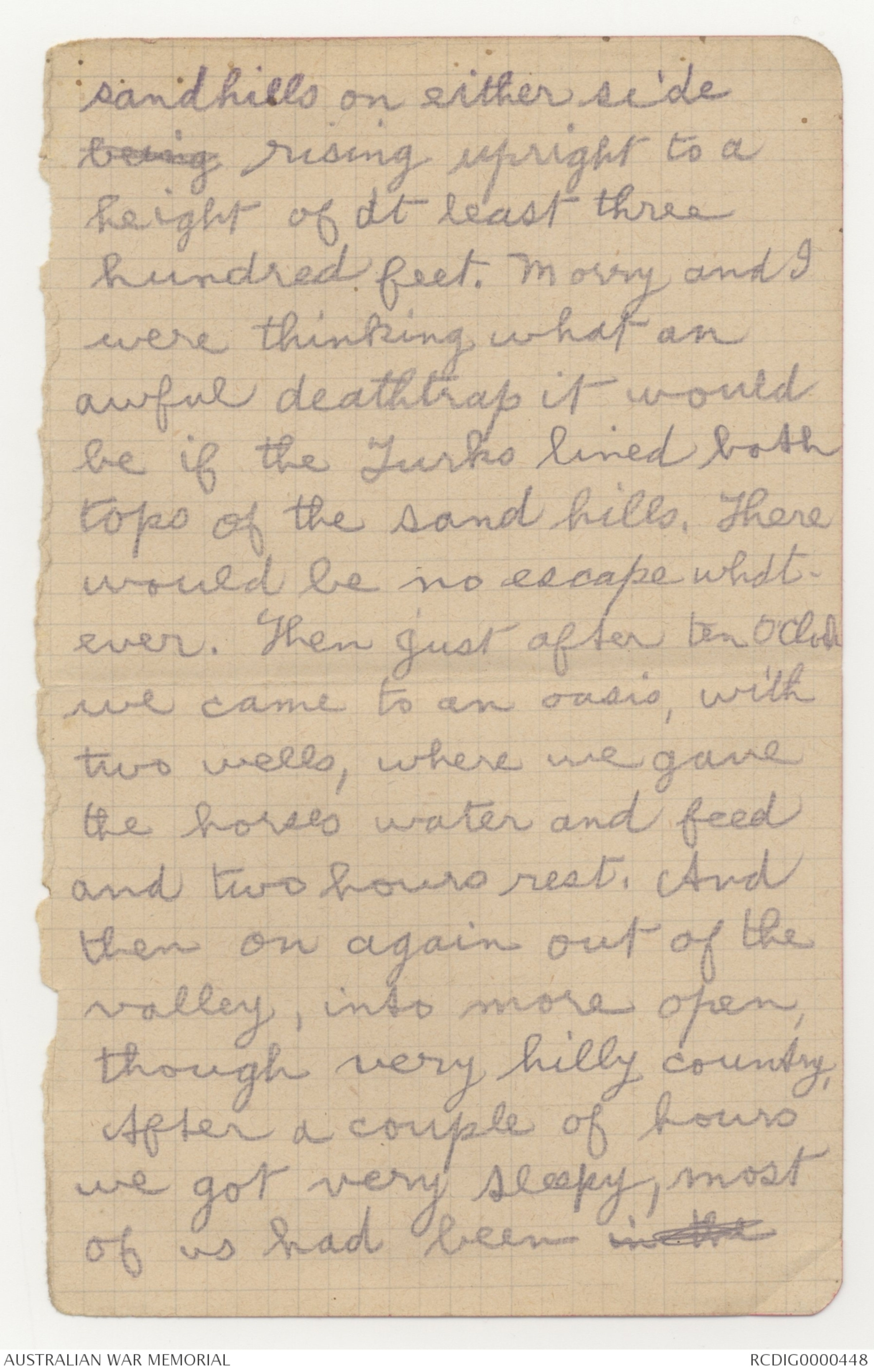
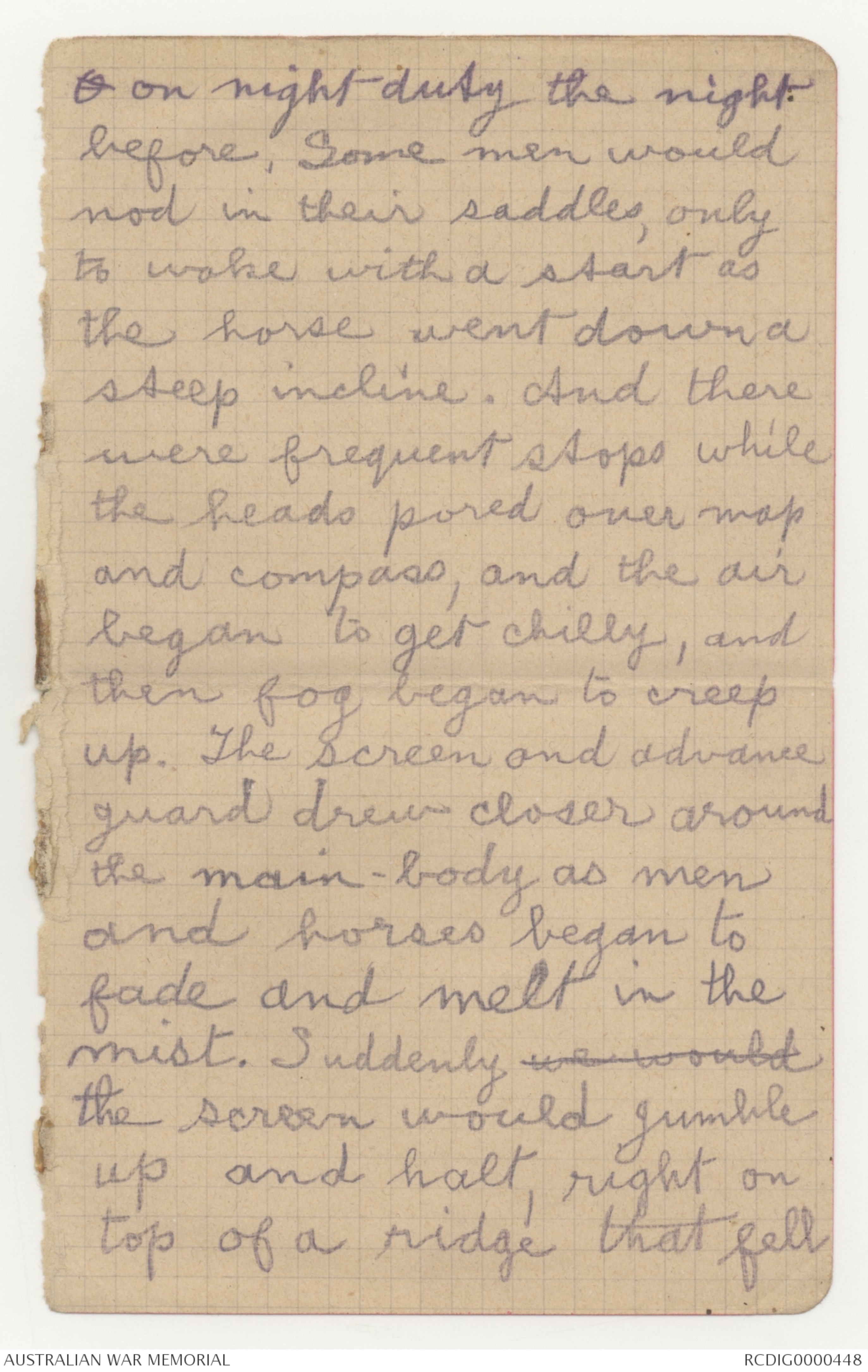
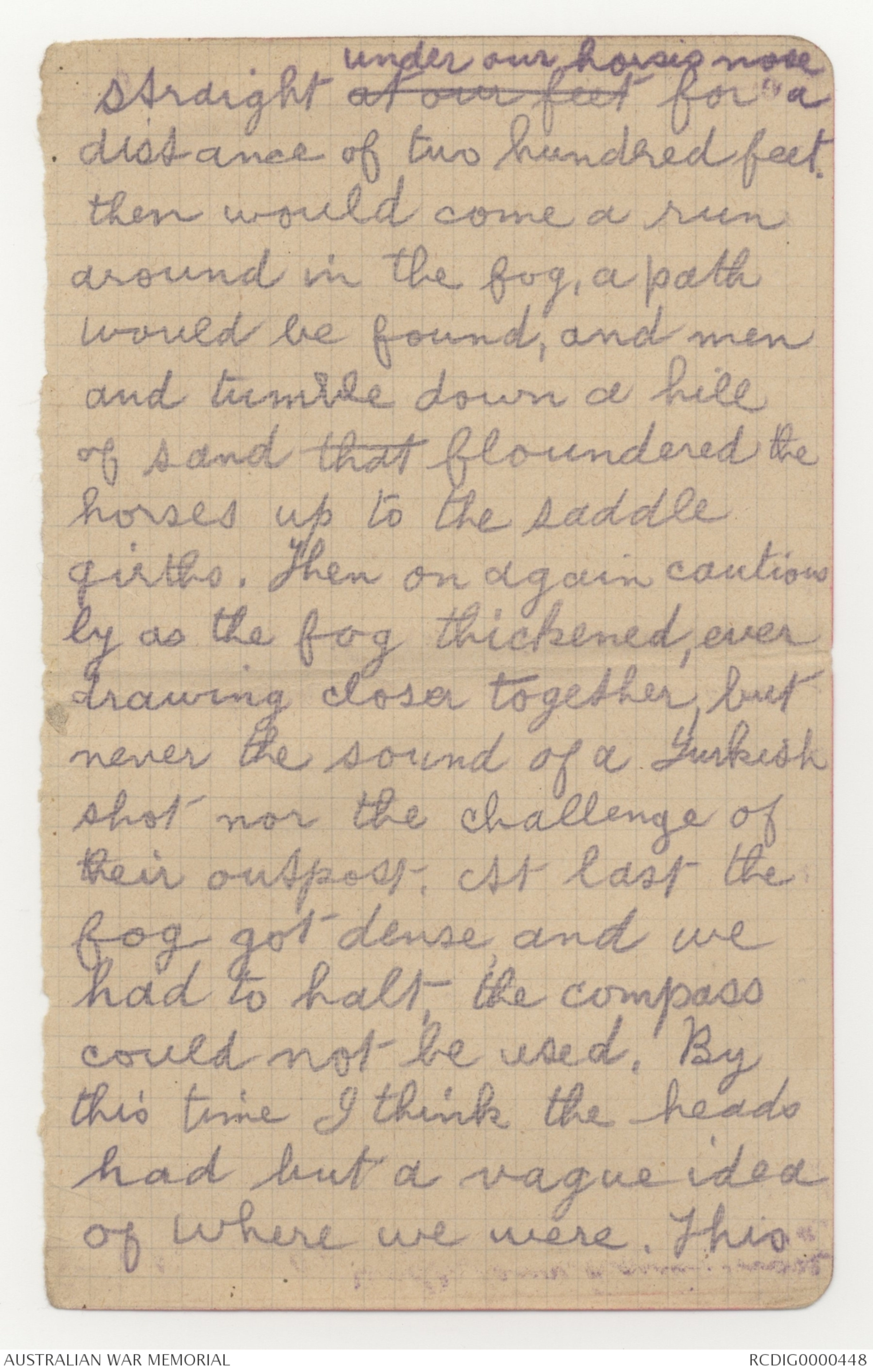
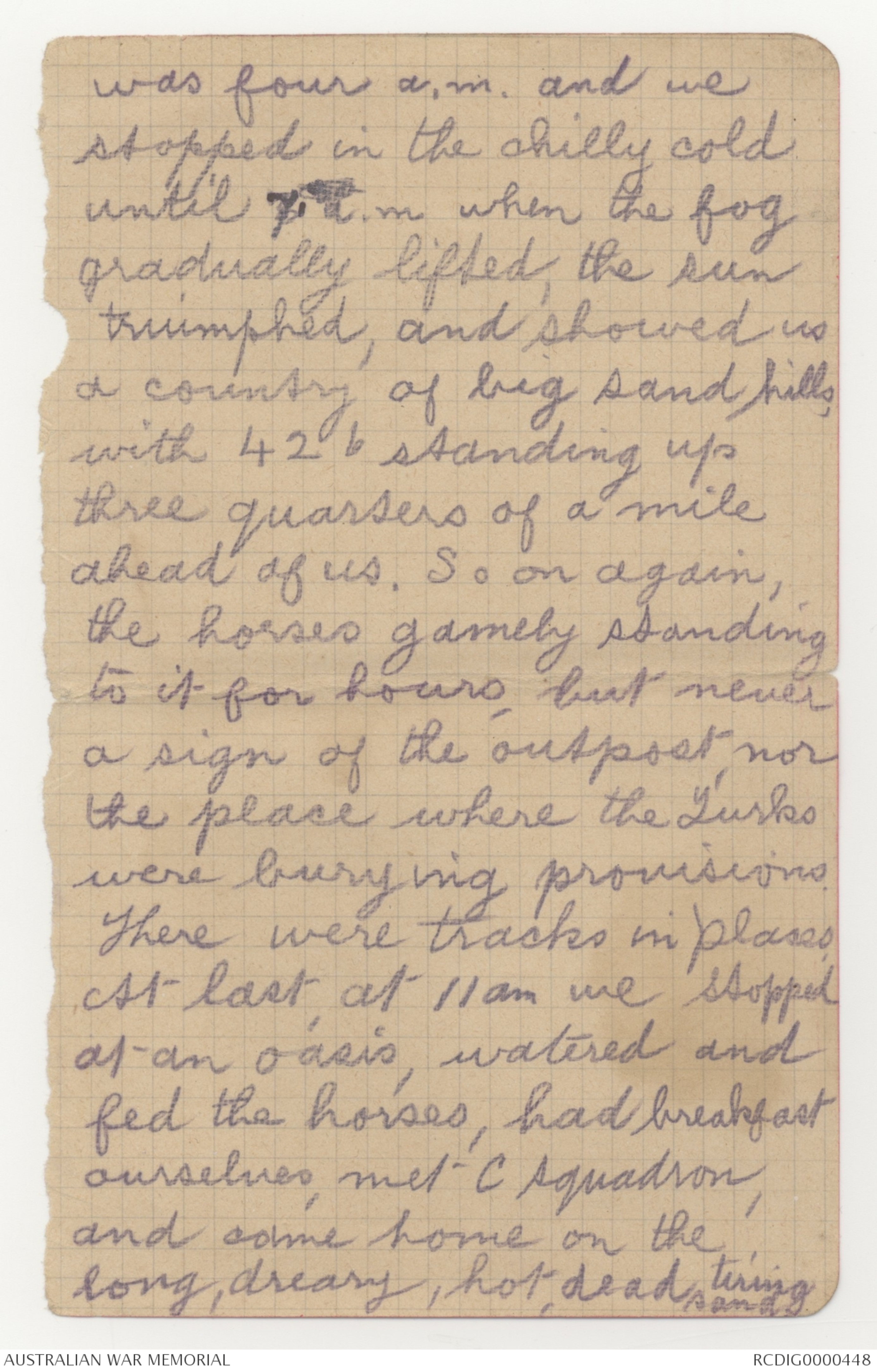
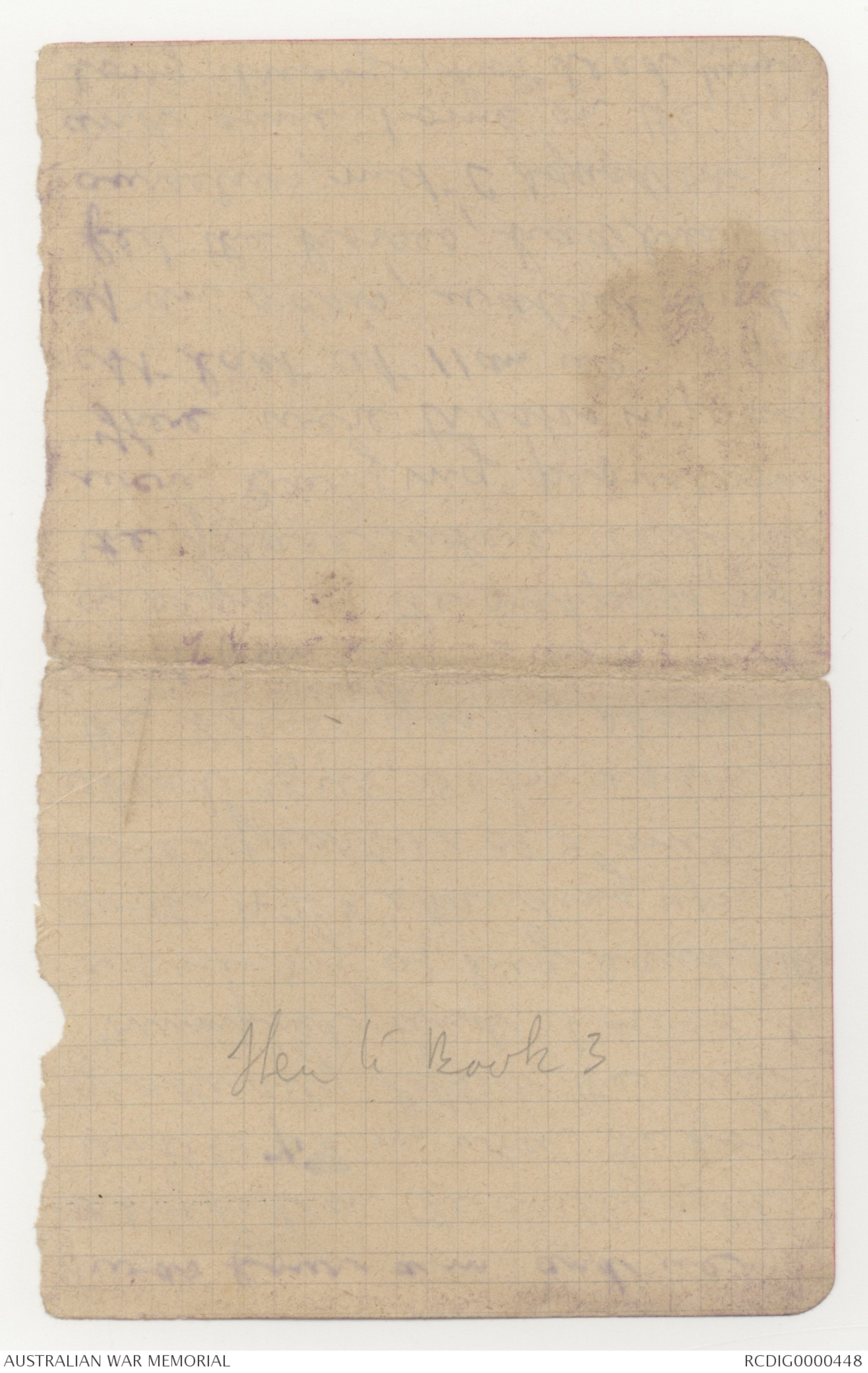
by arabs, who would
certainly slip away and
report to the nearest Turkish
patrol, who of course would
track us up on fast camels.
It would then mean us getting
surrounded, a sharp rush in
the night and then - finish.
Also, the aeroplanes have
reported exactly where the
enemy are, and it is very
unlikely that a large number
of the enemy could be hidden
in the dongas or oasis. (Thus
the reconnaissance in force
yesterday proved the report
on El Abid to be correct.)
The Colonel mentioned a
party of twelve Turks in an
oasis forty miles away. I
picked on to inspect us,
So that a lot of tired
men had to put on their
rig out, ride over to the
Canal and wait a long
weary wait for the Prince to
canter along the line.
No doubt if the Prince
could only hear what
those men said, w he
would come out and
inspect the camp when
we were at our daily
work. If he were really
interested, he would then
get a dim idea of what a
soldiers life really is. 21st
On Anzac Guard to
day. This evening we
turn Beginning of Book
immediately pressed him
to let us four go after them
on the chance that we might
be able to bring back a
prisoner or two. The colonel
smiled and shook his head
and said he would think
about it, it is a very
dangerous enterprise. All
the same I reckon the
Gun Section could dish
up those twelve Turks
If a column of mounted
troops are marching in
sections, they will pass a
given point at a walk at
the rate of 120 men per minute
Infantry 200
5 guns 5 a minute
5 p.m. Hoo -Blooming -Hurrah.
An issue of bread and
jam has arrived. Why
the hell can't they keep us
supplied regularly? Why
the blazes don't they bog
in and finish the war?
Why can't a man have
three wives? 10th The
flies have got simply
unbearable. A man
handles his food with
one hand, and brushes
the swarm of ravening
flies frantically away
with the other, There
is still a taint of
dead men in the air.
There are plenty of dead
+
camels [[?]] There is a peculiar
sickness going among us. It
starts with vomiting, then a rash
breaks out which spreads out
over the whole body in half
an hours time. It is fearfully
itchy. The doctor has some
stuff that eases the itch, otherwise
a man would go mad.
12th. Th Aeroplane brought in
word that Turkish patrol was
on hill 462, about twelve
miles out, and that a small
party of Turks were burying
something away behind the hill.
At eight o'clock the night
before last A squadron started
Pepper
noses troubled, and
would for the time
being be helpless
out, with B squadron following
four hours behind as supports,
to attack and see what the
Turks were up to. We had to
go a very long way around,
out of the way of their outpost,
and attack them in the rear.
It was moonlight, and until
12 p.m a splendid ride.
The squadron had a screen
of men thrown out around
it within close distance, the
main body under Captain
Bolingbroke riding in the
and attached to destroyers,
then submarine hunting
would become very
amusing, and submarine
warfare would be practically
hors-de-combat
centre. We passed to the south of
Hill 383, in very heavy sand,
hich continued for the whole
of the trip. There was no smoking
of course, and very little whispered
talking. What worried us was
the whinnying of the horses. A horse
in the screen would whinny,
and his mate in the main body
would answer, then other mates
would eagerly whinny and
all along the column would come
the whinnying of horses in the
cool night air. And the sound
carried a long way through the
still desert air. The neddies
was have a great sense
of comradeship. Take a horse
away out on the screen, where
he will be on his own, and
he will either tug and stamp
to get back among his mates,
or else throw up the sponge,
and hang down his neck, and
let the heavy sand get the
better of him. But if he be in
the supports or main body,
where the horses are close together,
he will plug along side by
side with the other horses, and
tire himself to death rather
than fall behind. Just before
After leaving 383 we were in a
sort of valley, with very steep
sand hills right up to our right,
and low sand hills away on
our left. Aft Towards nine
o'clock the hills began to
close in, until at ten oclock
we were in a valley, only
three hundred yards wide, the
sandhills on either side
being rising upright to a
height of at least three
hundred feet. Morry and I
were thinking what an
awful deathtrap it would
be if the Turks lined both
tops of the sand hills. There
would be no escape whatever.
Then just after ten O'clock
we came to a oasis, with
two wells, where we gave
the horses water and feed
and two hours rest. And
then on again out of the
valley, into more open,
though very hilly country.
After a couple of hours
we got very sleepy, most
of us had been in the
O on night duty the night
before. Some men would
nod in their saddles, only
to wake with a start as
the horse went down a
steep incline. And there
were frequent stops while
the heads pored over map
and compass, and the air
began to get chilly, and
then fog began to creep
up. The screen and advance
guard drew closer around
the main-body as men
and horses began to
fade and melt in the
mist. Suddenly we would
the screen would jumble
up and halt, right on
top of a ridge that fell
straight under our horses nose at our feet for a
distance of two hundred feet,
then would come a run
around in the fog, a path
would be found, and men
and tumble down a hill
of sand that floundered the
horses up to the saddle
girths. Then on again cautiously
as the fog thickened, ever
drawing closer together, but
never the sound of a Turkish
shot nor the challenge of
their outpost. At last the
fog got dense and we
had to halt, the compass
could not be used. By
this time I think the heads
had but a vague idea
of where we were. This
was four a.m. and we
stopped in the chilly cold
until 7. a.m when the fog
gradually lifted, the sun
triumphed, and showed us
a country of big sand hills,
with 426 standing up
three quarters of a mile
ahead of us. So on again,
the horses gamely standing
to it for hours, but never
a sign of the outpost, nor
the place where the Turks
were burying provisions.
There were tracks in places.
At last, at 11am we stopped
at an oasis, watered and
fed the horses, had breakfast
ourselves, met C squadron,
and come home on the
long, dreary, hot, dead, tiring
sand.
Then to Book 3
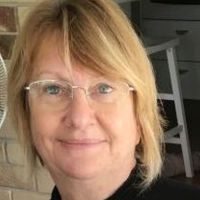 Diane Ware
Diane WareThis transcription item is now locked to you for editing. To release the lock either Save your changes or Cancel.
This lock will be automatically released after 60 minutes of inactivity.